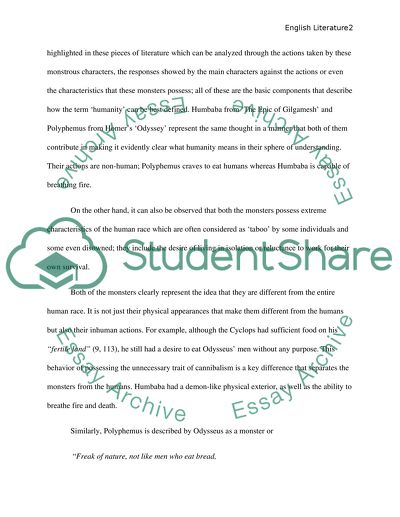Cite this document
(“Comparison Between Humbaba in Gilhgamesh and Polyphemus in Odyssey as Essay”, n.d.)
Comparison Between Humbaba in Gilhgamesh and Polyphemus in Odyssey as Essay. Retrieved from https://studentshare.org/literature/1449039-compare-the-stories-of
Comparison Between Humbaba in Gilhgamesh and Polyphemus in Odyssey as Essay. Retrieved from https://studentshare.org/literature/1449039-compare-the-stories-of
(Comparison Between Humbaba in Gilhgamesh and Polyphemus in Odyssey As Essay)
Comparison Between Humbaba in Gilhgamesh and Polyphemus in Odyssey As Essay. https://studentshare.org/literature/1449039-compare-the-stories-of.
Comparison Between Humbaba in Gilhgamesh and Polyphemus in Odyssey As Essay. https://studentshare.org/literature/1449039-compare-the-stories-of.
“Comparison Between Humbaba in Gilhgamesh and Polyphemus in Odyssey As Essay”, n.d. https://studentshare.org/literature/1449039-compare-the-stories-of.


